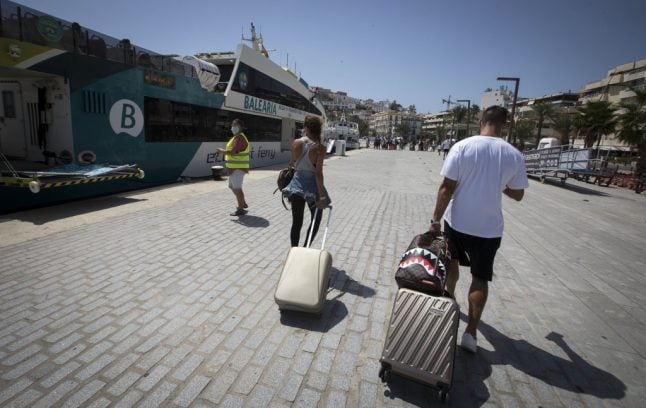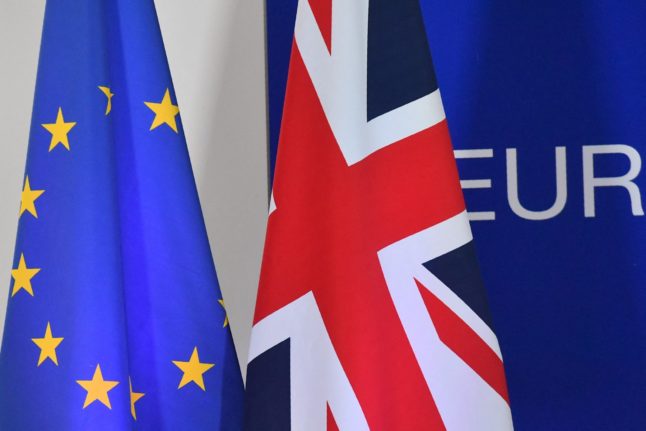Residents of the southern region of Puglia will have to self-isolate for 14 days upon re-entry if they travel to Spain, Greece or Malta, according to a new regional ordinance, after a number of recent infections were traced back to returning holidaymakers.
“In the last two days we've logged numerous cases of Puglia residents who have tested positive after coming back from Greece, Malta, Spain, countries with a high viral circulation,” said regional president Michele Emiliano as he announced the new rule on Tuesday evening.
READ ALSO: Italy warns of new infections brought back by Italians holidaying abroad
The quarantine requirement will not apply to Spanish, Greek or Maltese residents visiting Puglia, nor to people who live elsewhere in Italy and pass through the region on their way home – if, for instance, they return by ferry to the large ports of Bari or Brindisi and drive to another part of the country.
But everyone arriving in Puglia, including locals, residents of other regions and foreign tourists, is required to inform regional health authorities using an online 'self-report' form (available here). The requirement applies whether you're entering Puglia from abroad or simply another region of Italy.

Temperature checks for drivers near Italy's border with Slovenia. Photo: Jure Makovec/AFP
Police will be stepping up controls to catch people who fail to fill in the form, according to Emiliano, who warned that those who shirk the obligation could face “heavy penalties”.
Breaking the new quarantine rule, which applies from August 12th, will also be a punishable offence, he said.
The governor added that Puglia would be stepping up coronavirus testing for people returning from 'high-risk' countries, though for the moment taking the swab remains voluntary.
Other regional restrictions
Campania says residents returning from any foreign country this month must take either a swab or a blood test when they get home. They should contact their local health authority within 24 hours of arriving in the region, even if they've stopped elsewhere in Italy on their way back.
Meanwhile the northern region of Emilia-Romagna will make testing mandatory for residents returning from Spain, Greece, Croatia or Malta, in a new ordinance due to be signed on Wednesday. Holidaymakers must get tested within 24 hours of arriving in the region, but they'll only have to quarantine if the swab comes back positive.
Sicily's government has indicated that it may introduce its own rules too.
READ ALSO: Where are Italy's new coronavirus clusters?
While Italy has not introduced any new nationwide restrictions on travel to the three countries, regional governments are threatening to take action after several new coronavirus clusters were started by Italians returning from holidays abroad.
Many of the most widely reported cases involve young Italians travelling on package holidays to busy party destinations, including some 20 teenagers in Veneto who went on a coach tour to Croatia, a dozen teens in Tuscany who visited Greece, eight people in Rome who had been to Malta, and five 19-year-olds in Puglia who went to Greece.
The only EU countries on which Italy has nationwide restrictions are Romania and Bulgaria, whose residents may still travel to Italy but must quarantine for two weeks on arrival.
People from all other members of the EU or Schengen Zone, plus the UK, face no restrictions when coming to Italy.
READ ALSO: Italy's latest travel rules, explained
Quarantine remains compulsory for anyone else arriving in Italy – any region of it – from any non-European countries.
The Italian government is understood to be considering tightening other safety measures across Italy in response to a rise in the number of new infections detected in recent weeks, including making face masks compulsory outside as well as indoors and introducing mandatory testing at airports, stations and ports.
FROM OUR SPANISH SITE: Spain struggles with Western Europe's worst coronavirus infection rate



 Please whitelist us to continue reading.
Please whitelist us to continue reading.
Right. So residents coming from these countries don’t need to quarantine but residents of Italy returning from them do?! Am missing some logic here…?!